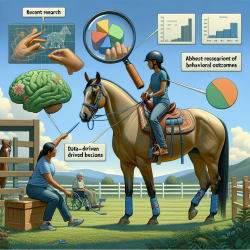Introduction
In the ever-evolving landscape of global health research, a critical examination of the practices and ethics involved is essential. The research article "Global Health Perspectives on Race in Research: Neocolonial Extraction and Local Marginalization" sheds light on the historical and ongoing issues of neocolonial practices in health research. This blog aims to guide practitioners, particularly those involved in speech-language pathology and child outcomes, on how they can improve their skills and contribute to more ethical research practices.
The Historical Context
The shift from "tropical medicine" to "global health" marks a significant change in the focus of health research. Historically, research in low- and middle-income countries (LMICs) was often driven by the interests of high-income nations, with little regard for the needs of the local populations. This neocolonial approach has resulted in significant ethical concerns, particularly regarding the exploitation of indigenous populations.
Key Takeaways for Practitioners
- Engage Local Communities: Practitioners should prioritize engaging with local communities in LMICs to ensure that research benefits those who participate.
- Promote Ethical Research Practices: It is crucial to adhere to ethical guidelines that respect the autonomy and rights of research participants.
- Focus on Capacity Building: Investing in the training and development of local researchers can help shift the balance of power and promote sustainable research practices.
Implementing Ethical Research Practices
To improve outcomes for children, practitioners must adopt a data-driven approach that is both scientifically sound and ethically responsible. This involves:
- Ensuring informed consent is obtained from all participants.
- Conducting research that directly benefits the local population.
- Collaborating with local researchers to promote knowledge exchange and capacity building.
Encouraging Further Research
Practitioners are encouraged to delve deeper into the complexities of global health research ethics. By understanding the historical context and current challenges, they can contribute to more equitable and just research practices. Engaging with the original research paper can provide further insights into these critical issues.
To read the original research paper, please follow this link: Global Health Perspectives on Race in Research: Neocolonial Extraction and Local Marginalization.










